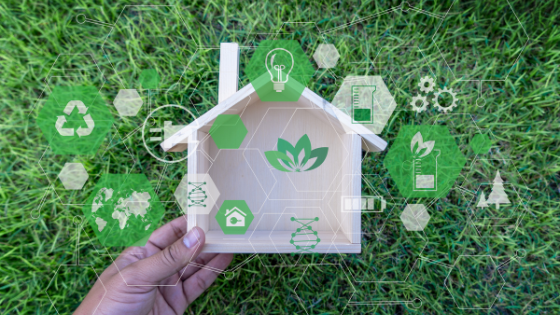Anyone can do a home energy audit. It’s fairly simple, but can help save a considerable amount of money if done properly. Here’s how to do a home energy audit.
Inspect the appliances.
Check the HVAC system and fans for any visible signs of damage or wear and tear. If the system is more than 15 years old, then it may be time for an upgrade to a newer, energy-efficient model.
Examine the ductwork.
Check the duct seams and joints for any leaks. If you see any dirt streaks, you will need to use duct mastic or professional-grade duct tape to seal the leaks.
Look for air leaks around windows and doors.
Small gaps around windows and doors may let warm or cold air enter the home, making it harder for the HVAC system to reach the temperature set on the thermostat.
Monitor water usage.
Install low-flow showerheads and only run full loads of washing machines and dishwashers to reduce water usage and energy consumption.
Inspect uninsulated spaces.
Junctions between walls, floors, and ceilings may allow heat loss during winter if not properly insulated. Also check plumbing fixtures, light switches, and electrical outlets for signs of poor insulation.
Inspect attic insulation.
Check for gaps in insulation around chimneys, ducts, pipes, entranches, or hatches. Consider using expanding foam insulation to seal any gaps.
Check wall insulation.
You will need professional thermal imaging equipment to evaluate wall insulation. Or you could call Tucker Hill to take care of this.
Insulate the floors.
If you have uninsulated basements or crawl spaces, consider insulating the floors. To prevent heat loss, make sure to have a minimum insulation rating of R-25.
Evaluate light usage.
If you frequently leave the home without turning off the lights, or if you notice kids forgetting to turn off the light after leaving their room, consider using timers or automatic lights to cut electrical costs.
Replace light bulbs.
Considering replacing incandescent bulbs with LED bulbs to reduce electricity use.
Unplug unnecessary appliances.
If you’ve got many appliances scattered around the home that you rarely use, unplug them to conserve energy. Even if they’re turned off, appliances like stereos, phone chargers, and fans continually draw energy.
If you have any questions about the home energy audit or would like a professional to take care of it for you, call Tucker Hill!

